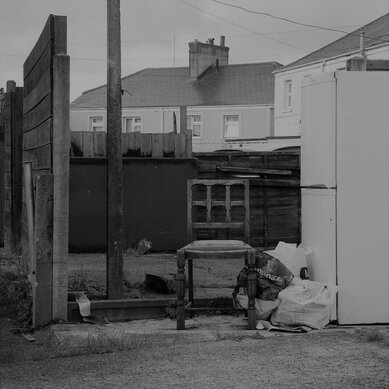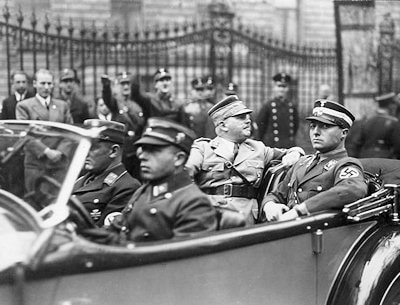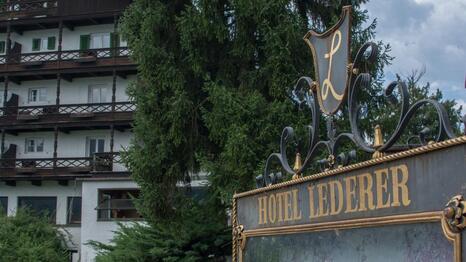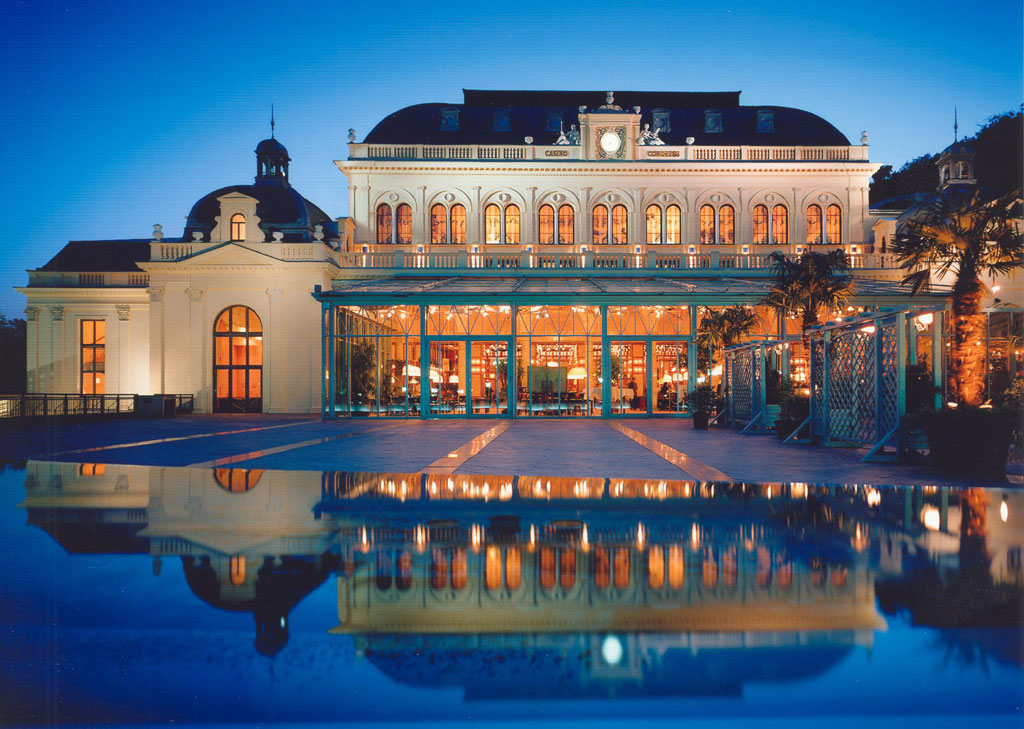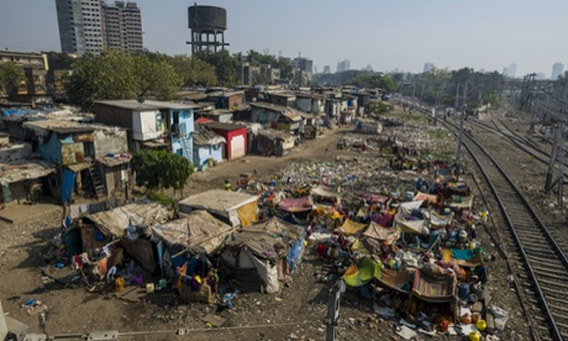Short EssayNote: Reading through the text below a few months after writing it has made me come to the conclusion, that it's definition of populism is faulty. Why? Because there is no such thing as "the populous". Hierarchies used to analyse voting behaviour are abstract constructs that don't understand it's fine nuances and the immense heterogeneity of the "general population" makes it impossible to fully comprehend it in the first place. That's why it would be wrong to define a "populist politician" as someone who finds easy answers to complex questions. Most people do not make political decisions based on reason, which would involve the tiresome act of deliberation. They tend to take the easy way out and follow their instincts, which are based on emotion. The text below therefore defines populism as the targeted use of emotions for political influence and states that this practice has increased lately. But I would now argue that "politics of emotion" have always existed and are simply a means of getting into politics and surviving once you've done so, rather than malicious manipulation. Also, one has to keep in mind that social media, which has replaced largely homogenous communities with niche groups, each peddling their own ideology, has increased the potential of insecure and detached voters, making them more receptive to emotional manipulation. But are we really more polarised or are society's apparent polarisations simply the product of democratised debate? Because this question cannot be answered by the text below, I have cut out it's many trivial attempts to do so. Local problems or national politics, global movements or individual insecurities can motivate people to vote populist. Many want change. Fast. It's unsurprising that poorer people have less trust in political parties. In Germany, over 40 percent of the respondents to a study with a net household income of under €3,000 did not trust any political parties whatsoever, while the same was true of significantly less than 30 percent of those in higher pay-grades. Shifts in economic sectors have made blue-collar communities especially vulnerable to change. Areas traditionally reliant on secondary sector industry in both the UK and Germany are now at an apparent economic disadvantage and yearn for ‘levelling up’ – something Boris Johnson cleverly exploited in his 2019 election campaign. Saxony, greatly reliant on secondary industries such as machine construction, has also seen nearly 30 percent of people voting for the populist AFD party in recent elections, more than any other German state. But Katja Kipping, the leader of Germany’s Left party, does not believe that regional inequality creates populism. “Whether you lose your job or are dependent on welfare because of illness makes no difference to those who are affected. The nurse who runs out of money at the end of the month because of the high rents doesn't have it any easier than the production assistant who has to turn over every Euro twice due to the low wages ”, she tells me. Moreover, progressive social views have provoked a cultural backlash from traditionally conservative rural populations. Many are under the impression that their "patriotic" attitudes are threatened and feel isolated in communities that are increasingly changing.
Culminating in the 2016 Brexit referendum, the roots of realist populism in the U.K lie largely in the EU’s percieved focus on “non-British interests”. People did not vote Brexit because of EUconomics. They voted for it because the EU had become a symbol of liberalisation and abstract poltics, not in line with 'common sense' populism. Similar trends can be seen in Germany. A 2018 study conducted by the university of Leipzig found nearly half of AFD voters think that "there are secret organizations that have a big impact on political decisions”. But Alexander Gauland, the AFD's former leader, rebuked this in a statement to me, arguing instead that “the primary reason (for the AFD’s success), is the marginalization of real conservative politics”. This would be in line with Samuel P. Huntington theory in his Essay “The clash of Civilizations”, which predicted that the main future cause of conflict would be cultural identity rather than political ideology. Looking to Britain, the drive towards mass higher education has led to a “divergence between better and worse educated”. Over 90% of academics voted to remain in the European Union. While they will have based their descision on personal considerations, many of those who do not feel part of the ‘liberal elite’ have voiced their discontent at wider societal phenomenons by voting in defiance of an percieved elite instead of their direct interest. Pure populism is commendable. It acts as an inclusive movement for people of all persuasions and backgrounds in democracy, strengthening and protecting it from interior or exterior harm. It provides common ground and creates social consensus. When however abused, it will polarize and reinforce stigmas. The largest difference between British and German populism lies in the fact that German populism appeals to those who feel they have, or are going to, lose out as individuals or members of a certain region while society as a whole gets richer. British populism in turn speaks to those who feel that the worthiness and pride of their country has already been undermined, resulting in the collective succumbing to a hostile new globalism dominated by historic enemies such as China or Russia and emphasized by gentrification or fiscal measures such as austerity.
0 Comments
Infotainment articleIn spring of 1934, Adolf Hitler looked back on a year brimming with personal successes. He had tightened his grip on Germany, used 'communist' arson to declare a state of emergency, eradicated political opposition and established a propaganda state. He was on the brink of becoming Europe’s new emperor, of establishing what he believed would be a ‘Reich’ greater than any before. But in the shadow of his triumphs lay a nation crippled by its failing economy and 'stabbed in the back' by the Versaille treaty. Most dangerous for Hitler, however, was opposition from his own ranks. The Brownshirt leader Ernst Röhm was a force to reckon with. Röhm, as the commander of a paramilitary organisation 20 times the size of Germany’s army, meant nothing but trouble. He had become all too powerful. 3 days that changed historyAlleging that Röhm was plotting a putsch, Hitler ordered a massacre in the luxury 'Kurheim Hanselbauer' hotel. The 3 day purge saw Röhm and other SA leaders killed by SS-men. Some of Hitler’s other enemies were also murdered, including the last chancellor of the Weimar Republic, Kurt von Schleicher. Vice-Chancellor Franz von Papen narrowly escaped a brutal ending. Many historians argue that the callous brutality with which former allies and friends of Adolf Hitler were assassinated in the purge first brought to light his true nature. While the killings were met with interest and widespread admiration among the German ‘Volksgemeinschaft’, it was on the international stage that the birth of tyranny was watched with horror and contempt. Once dubbed a “gentle dictator” by TIME magazine, Hitler had shown his true colors to anyone so much as considering opposition to his macchiavellian politics. According to Nazi confidant Erich Ludendorff, the 'Führer' had “courageously, at the risk of his own life, suppressed all treasonable machinations at the outset”. But Hitler, torn between friendship, power and reluctance, was forced to act. Had bloodshed become inevitable? Some say yes. They argue the Night of Long Knives revealed Hitler as a strong leader because it was under his command that the killings took place and he, ‘in self-critical demeanor’, recognized the pertinence of satisfying the demands of the German public while keeping possible threats to a minimum. But historians who think that friends helped him into power disagree. Röhm: powerful agitator with a salacious secretErnst Röhm was one of the ‘DAP’s’ (German Workers Party) founders, helping Hitler win the support of the Bavarian army during Weimar unrest. Röhm, himself from a humble background, had been sympathetic to a second revolution intent on destroying social elites and replacing the military by a “people's army”. These radical ideas alienated Hitler once he had secured sufficient power in 1934 and was less reliant on democratic vote than the support of wealthy benefactors. It is believed that Röhm was gay, Nazi propaganda asserting that he was found in bed with boys when the purge took place. They maintain that the execution of over 400 SA members does not only demonstrate the influence of other powerful personalities such as Göring on Hitler, but that it strengthened their authority. So, was resorting to means of brutal force really a measure of desperation rather than what German propaganda made out to be a valiant defense against revolutionary forces? Hitler had initially been hesitant to suppress Röhm’s machinations. Under his command, the SA had become a powerful political institution that over 4 million men, drawn to militancy and radicalism, had entered. And the ‘humiliating’ Versailles treaty, which had not only weakened Germany economically but reduced the German army’s permitted size to 100 000, had allowed the proletarian SA to gain supremacy with regards to enrollment and power. Many bourgeois-conservative army leaders such as Werner von Blomberg (Minister of war and Commander-in-Chief of the armed forces) felt disgruntled by this development, considering the SA a threat to stability within the country and a force for communism. Chilling documents reveal Röhm had sent Blomberg a message saying he wanted the army to be replaced by the SA as the country's primary fighting force. Because the the army leadership now considered Röhm an increasing threat to their position of power, the ‘weak dictator’ was left in an uncomfortable limbo between SA and Military interests. Even Goebbels, purported to be one of Hitler’s most enthusiastic subordinates, became discontent with Hitler’s apparent indecision. Writing in his diary, he commented that the ‘Führer’ “must act or we could go under”. But due to sympathy to Hitler’s promises of bringing resolve to the Versailles treaty, Blomberg had brought around the army to an increasing open-mindedness towards the Nazi regime. Concessions to Nazi ideology such as the Aaryan paragraph (banning Jews from the army), showed support for Hitler was increasing within army ranks and contrasted to the greater alienation of SA forces to the ‘tail-coat’ Führer. Nazi-skeptical forces had united behind Hitler in their struggle to weaken Röhm. There is today limited evidence that Röhm was actually planning a putsch in 1934. Indeed, even an aggressive speech to the SA calling for “ the energies of every SA fighter ” doesn’t explicitly mention subterfuge. This may reveal Hitler to be a leader plagued by fear of revolution rather than one acting upon valid reason. But evidence shows Hermann Göring (himself a former leader of the SA) had become so worried by developments that he agreed to hand his control of the Prussian military police over to Himmler, centralizing it and creating a counterweight to the SA. This indicates that the SA’s threat to Hitler’s sovereignty was recognized by leading Nazis, aware that they could use it to justify intrigue and conspiracy. The political police had already begun manufacturing ‘evidence’ of a supposed uprising planned by Röhm, presented to leading SS officers on the 24th June 1934. Tabloid terror: How Nazi press reacted to the purgeCalculating Nazis of every rank abused the purges’ chaotic momentum to eradicate many in opposition to not only Hitler but themselves. Anti-Nazi ‘savages’ (including the former prime minister of Bavaria, Gustav Ritter von Kahr) were slaughtered without second thought. The killings served as stark warnings to anyone willing to conspire against Hitler and ‘demonstrate his authority’.
Hitler had built up support within the old Institutions of the Reich while failing to resolve the chaos of new Nazi politics. Following the purge, Himmler said that a second revolution could have allowed “a foreign enemy to march into Germany with the excuse of order having to be created”, clearly suggesting his willingness to manipulate the ‘Führer’. And unscrupulous Hitler instrumentalized the purge as propaganda. Speaking to cabinet, the dictator alleged that “it was not our intention to violate the will and the right of the German Volk’s self-determination, but to drive away those who violated the nation.” The undertaking was legalized retrospectively, a cunning act that manifested the ‘Night of Long Knives’ as a success in securing him absolute power over all elements of state. Hitler may have not shown himself to be a strong leader initially, but the Night of Long Knives in itself was an act of decisive resilience against possibly subversive forces. Albert Speer remembers that the day after, Hitler said he “alone was able to solve the problem”, asserting that the ‘Führer’ was “inwardly convinced that he had come through a great danger”. Fear had crept into German jubilation. The ‘Führerkult’ had gone from mere propaganda to dictatorial rule. But history's darkest chapter had only just begun. This article was written for 'Railway Traveller'; https://railwaytraveller.com/inspiration/insider-tips/deutsche-bahns-ice-service-berlin-to-baden-baden Benedict Holland travelled through Germany on a leisurely train journey to discover Brunswick, Fulda and Baden-Baden
A train journey with Deutsche Bahn’s ICE service is always a pleasure, especially if you go first class from Germany’s capital to the lesser known beauty spots on its border to France. The ride to Baden-Baden, which takes five and ¾ hours and departs every 2 hours from Berlin Central Station, takes you through some of Germany’s must-visit areas such Thuringia, famous for its sausages, natural beauty and cultural heritage. In the first-class carriages you’ll enjoy travelling on big leather seats and looking out of the large windows at the passing scenery. There is good free Wi-fi on the train and passengers booked in the designated quiet areas can enjoy reading and relaxing without loud disturbances. The popular train restaurant offers hot meals and cold beverages in the luxuriously furnished dining carriage. You can also order the barista-grade cappuccinos and americanos directly from your seat in English, which is understood by all members of staff. "You'll pass a multitude of exciting cities and areas On the train, you will pass a multitude of exciting cities and areas; Brunswick, famed for its eclectic mix of architecture and shopping is always worth a visit while Fulda, home to a magnificent palace and a baroque dome, offers great traditional German food. Once you’ve arrived in Baden-Baden, a historic spa town in the west of Germany’s Baden Württemberg state, treat yourself to a stay in the luxurious Brenner’s Park Hotel & Spa for the night before visiting the Friedrichsbad, known as Europe’s ‘most avant-garde’ bath house during the 19th century. Baden Baden’s world-renowned Casino is also worth a visit, while a traditional Schwarzwälder Kirschtorte in Cafe König is a delightful way to end the day. Baden Baden’s short proximity to Strasbourg gives Francophiles the opportunity to continue their journey through France. If you’re looking to see the ‘real’ Germany, this is a great way to do it in style. Travel Information Single first-class fares from Berlin to Baden-Baden start at £38.74 (£16.99 for standard class) if you book in advance. See Trainline.com for more. For rates at Brenner’s Park Hotel see Booking.com RESPONSE TO AN ARTICLE AGAINST GUN REGULATION IN THE U.S, Written in 9th grade Dear editors, America traditionally holds itself out to young people as a beacon of liberty, hope and freedom. It has in recent years become the opposite. Mass shootings and the horror of lawlessness have become normality and crime is surging once again. Americans feel less safe day by day. When I came across your article, “Gun control isn’t the answer”, I was appalled by the fact that you have instrumentalized and falsely interpreted data to fit your simple view. The fundamental premise of your article rests on the belief that additional restrictions on gun ownership would not prove effective, and that the police and state are to blame for the murders committed with guns, not the weak laws surrounding their ownership. "Smears and lies You also smear any constructive ideas about gun control as being “left wing” hypocrisy. There is no doubt that the Government and its agencies have failed in protecting its citizens from gun violence, but the Gun Lobby has been very successful in the pursuit of its agenda in the White House too. "If republicanism is synonymous with law and order, why do republicans choose guns and anarchy? You state that “for homicidal spectaculars … additional gun-control measures are unlikely to prove effective”, but neglect to consider the implications of gun restrictions on the average civilian. Claiming that the “Florida shooter had no criminal record... and so he was able to purchase rifles...” and that “the police and FBI failed to look seriously into him after receiving credible warnings of his murderous intent” contradicts your general stance, as the current weak regulations evidently did not prevent this murderer from buying a gun in the first place and tragically massacring 17 innocent teenagers with it. American politicians need only too look across the pond to save their children from bloodshed. In Australia, the total number of homicides involving a firearm more than halved after the so-called “gun law reform” was passed in the wake of a brutal mass shooting. The acquisition of guns was prohibited for most people and self defense became an invalid reason for buying firearms . With a bit of imagination the same could be possible in America. You also make the argument that it would be beneficial to provide “better gatekeeping” and armed guards for increased protection in schools. How depressing. It is unlikely that a gatekeeper or a armed guard would be able to secure a school from most threats or see if somebody is concealing a gun if no expensive appliances like metal detectors are in place. Many schools have already taken extra security precautions and are still at great risk. The only thing that your suggestion would achieve is increased expenditure for an already strained educational system. It is obvious that the need for these precautions, and the general paranoia which results from them, would cease to exist if many Americans did not have easy access to lethal weapons in the first place. "Endless rampages and mass shootings in the U.S While endless rampages and mass shootings in the U.S continue, you choose to label the act of criticizing the use of a 223-caliber, AR-pattern rifle as “ignorant fear mongering”. Anybody that dares to question the current gun laws, is denounced as pathetic. While Dr. Moore argues that; “an assault rifle is designed to deliver fatal wounds”, you state that “AR-style rifles are used in everything from small-game hunting to competitive marksmanship”. Most people won’t be using them for field sports. The war on terror should begin by combatting assault rifles, not anyone daring to criticize the use of them. Surely it would be possible to start by banning gun ownership for anyone with a criminal record before introducing more specific restrictions. In the UK, an evaluation of a person's suitability to own a gun is a prerequisite for obtaining a gun license. It is a heavy responsibility to certify that a person could never be a risk to themselves or others. Of course it might “be found to be unconstitutional”, but a change in the constitution is the only way forward for America. Don’t get me wrong; police and security forces have a critical role to play in preventing gun murders, especially if terrorism is involved. And yes, the statement you make that “the police and FBI failed to look seriously into” the parkland shooter is correct. But it’s impossible for them to do so. Of the 38353 Americans killed by guns in 2016, only 71 people died in an mass shooting. 14,415 where homicides, and 22,938 were suicides. That’s more than 60%. The truth is that about 18% of America's adults face mental health issues. How can any health care, police or national security system seek out all of these people and prevent them from buying dangerous fire-arms, with which they could kill themselves or others? In a society that has seen 1,624 mass shootings in 1,870 days, this might prove more than a challenge. www.nationalreview.com/2018/02/parkland-florida-school-shooting-gun-control-not-answer/ I had never before taken interest or considered the immense impact that music can have on people and society, but after watching an tremendously interesting BBC 4 documentary called “Tunes for the Tyrants”, new realms of cultural perspective opened up. Music can influence and manipulate us emotionally but also our ethical approach on politics. "Music can influence and manipulate us emotionally but also our ethical approach on politics. At start, Suzy Klein met with a Berlin Cabaret Artist and discussed popular Cabaret Songs. A stark contrast to the London and Parisian Cabarets in the 20’s, Berlin took an satirical stance on politics , poverty and prudeness. Music was less of an escape from a world spiralling to a bitter end than a thought-provoking yet amusing and defiant take on the era. Berlin had become a much more liberal and metropolitan place since the fall of the German Empire, which was reflected in the city’s thriving arts scene that some describe as being more avant-gardist than many Cities today. "no-go topics including prostitution Plays like the world-famous “three-penny opera” (written by Berthold Brecht) looked at the society from an different angle, incorporating former no-go topics including prostitution. The documentary also followed Russia’s musical ouvre during the time. Unsuprisingly, Lenin wanted “music for the people” and in 1922, an new orchestra was created. Travelling around the country’s rural and poor areas, its purpose to entertain farmers and factory workers proved a veritable success. Very interesting and new approach to a topic otherwise saturated by triviality. A short clip here:At 8:00 o’clock, I arrived at the Studio, and the programm was being broadcast live. I kept a low profile, but was introduced to everyone, including the hosts. It was very interesting to be part of a program like that, and an eye-opening experience! Surprisingly, the studio was smaller than expected.
Later, I went to the “quality” conference , were the quality and Standard of the reports in the tv-program was discussed. I arrived at the “Meta” at 4:00 o'clock, and had about an hour of free time. I then went to the second building called the “Fernsehwerft”. Here, I was able to experience how the voice-over for reports is recorded. As it is, the narrator was in a soundproof “box”, adjacent to the editing suite. Here, the speaker has direct contact with the editing room, and the report is transmitted to him on a television screen. He then reads the script. This normally takes about 15 minutes, as there are occasionally mistakes in the script, or the narrator misreads something.
I then went to the editorial office, which was very exciting because I had never been in such a room before, and had only known them from television. I also got to go downstairs into the studio, and meet the host, Claus Strunz. Then, I spent the next hours in the editorial room, and watched the different processes that happen there. I got driven home at 11:00 o’clock. I was woken at 7:15 in the morning. Still knackered, as I had been on a class trip to Rome in the previous week, I trotted downstairs for breakfast.
At 8:00 we left the house, driving to the Oberbaum Brücke, located near the Spree. It was here were my adventure would start. When I entered “Meta’s” headquarters, I received a friendly welcome from the editor. She showed me around, and I recieved my own desk, equipped with an computer and a telephone. Afterward, I was taken taken to the check-up of a report on the dangers faced by cyclists on German streets. Everyone made their own opinion clear, and made remarks and comments on how to improve the story. Later in the day, I had to do thorough research on an former Islamist, who decided to spill the beans and inform the wider community about the problems and processes in the IS and his path to radicalization. Overall, it was an incredible day, and everybody was astoundingly friendly and warm to me. In one month, i'll be having an internship at two different production companies that produce both the German breakfast television and a popular investigative journalism show. I'll be able to be on the set, help in some way or another and watch the different procedures that take place in such an institution. What a great opportunity! More information coming soon...
Asia's second largest slum, Dharavi, lies on prime property right in the middle of Mumbai. It is home to more than a million people. Many are second-generation residents, whose parents moved in years ago. Dharavi is one of the most densely populated slums in the world, with a pop. den. of about 250,000 per km2. In Mumbai, where house rents are among the highest in India, Dharavi provides a cheap and affordable option to those who move to Mumbai and have a small wage. Dharavi is located between Mumbai's two main rail lines, lots of people find it to be convenient for work. The slum has a large number of small-scale, informal industries, that produce garments, export leather goods, plastic or pottery. The manufacturing units are spread across the slum, they provide job opportunities for many. The government has plans to redevelop Dharavi and transform it into a modern township, complete with proper housing and shopping complexes, hospitals and schools.
There is a housing shortage in Mumbai, due to the fact that, as more and more people move to Mumbai, less affordable space is available for those who can't afford the high rents. A solution has been high-rise buildings, where more families can live on a small space. However, even these are too expensive for some, and they have to move to the Dharavi Slum. The slums inhabitants have to live in contemporary huts, pollution and sanitation are major problems. Compared to the poshest central Delhi parts, housing prices in India’s financial capital Mumbai are more expensive. One of the major features affecting this, is Mumbai's geography. There isn’t much land area for expansion or land development in the city. This limits supply. And when demand overtakes supply, prices rise. Bad infrastructure and use of land, have played a key role in this problem, but there are also solutions. "Vision Mumbai" plans to use the land, which is worth 8 billion, and build high-rise buildings. A certain percentage (or 1.1 million) of these apartments also needs to be affordable, so that those currently residing in the slum can have better living conditions. This project plans to reduce Mumbai's slum inhabitants by 90%. The touristic sector is plays an instrumental role in helping the slum improve in many ways. Putting a spotlight on the dyre situation in the Dharavi slum might force the government to act faster while improving the slum. Slum tourism also provides an alternative income for many locals, who can offer touristic tours, and are given an chance to work their way out of poverty. Tourism betters educational possibilities in slums such as Dharavi, as money gathered from tourism would flow into educational purposes to increase literacy rates, living conditions and give everybody currently residing in the a chance to lead a life like we do. Depending on your occupation, you might have a couple of days (or weeks) of holiday during easter. Most would consider staying at home or visiting their family during this time period, but visiting other European Countries is becoming a more and more popular trend for many central Europeans.
Southern European countries offer the perfect climate for walking around and exploring the area without the much dreaded heat, as the mild but warm climate is seen as relaxing by many and does not make you sleepy. Especially if you want to do one of the popular wandering tours along the Alantejo or Algarve coast, the climate is perfect, as it is not too hot, and not too cold. This is also similar for Spain, as the adjacent country lies in the same climate zone. Everybody knows the feeling. Your phone falls down, the screen breaks, you dont want to pay for repairs or spend 800$ on the newest iPhone or Samsung Galaxy. Some might consider repairing the screen, but you would be suprised to find out what you can buy for the same price of repairing it. Most people that dont want to buy an 800$ phone, will opt for a mid-priced model like the Huawai p10 or a Motorola, which are clunky, and, frankly ugly. But a new kind of phone has entered the European maket, Chinese "Phablets". These are phones produced by (mostly) unkown companies such as "Maze " or "Oukitel". The phones sport very good specs, are well made and stylish. Most of them also have the newest Android software, fast charging ports and high-resolution displays. One might think that all of this becomes pricey, however prices range from 70$-230$. At the end of the day, its your decision, but the next time your phone breaks, you might consider a no-name phone. Recently, I read an interesting report about Poland's political situation. Poland's president passed a law making it illegal to accuse Poland of having taken part in the Holocaust. The law was set up to protect Poland's image, but has also sparked widespread discussions about historical manipulation. Poland's leading, right-wing Party has "steadily eroded Poland's Democracy" (CNN), and is a prime example of a Surge of right-wing Populist Party's across Europe. I think that Poland should face it's History and come to terms with it, instead of erasing or rewriting anything that does not fit into the Country's ideal past. However, Poland should not be blamed for it's numerous concentration camps, as the Country suffered under Nazi rule, and over 3 million Polish Jews were murdered in Concentration Camps, built by the Nazis, such as Auschwitz. A prime example of Populist lunatics being voted into Government: |



